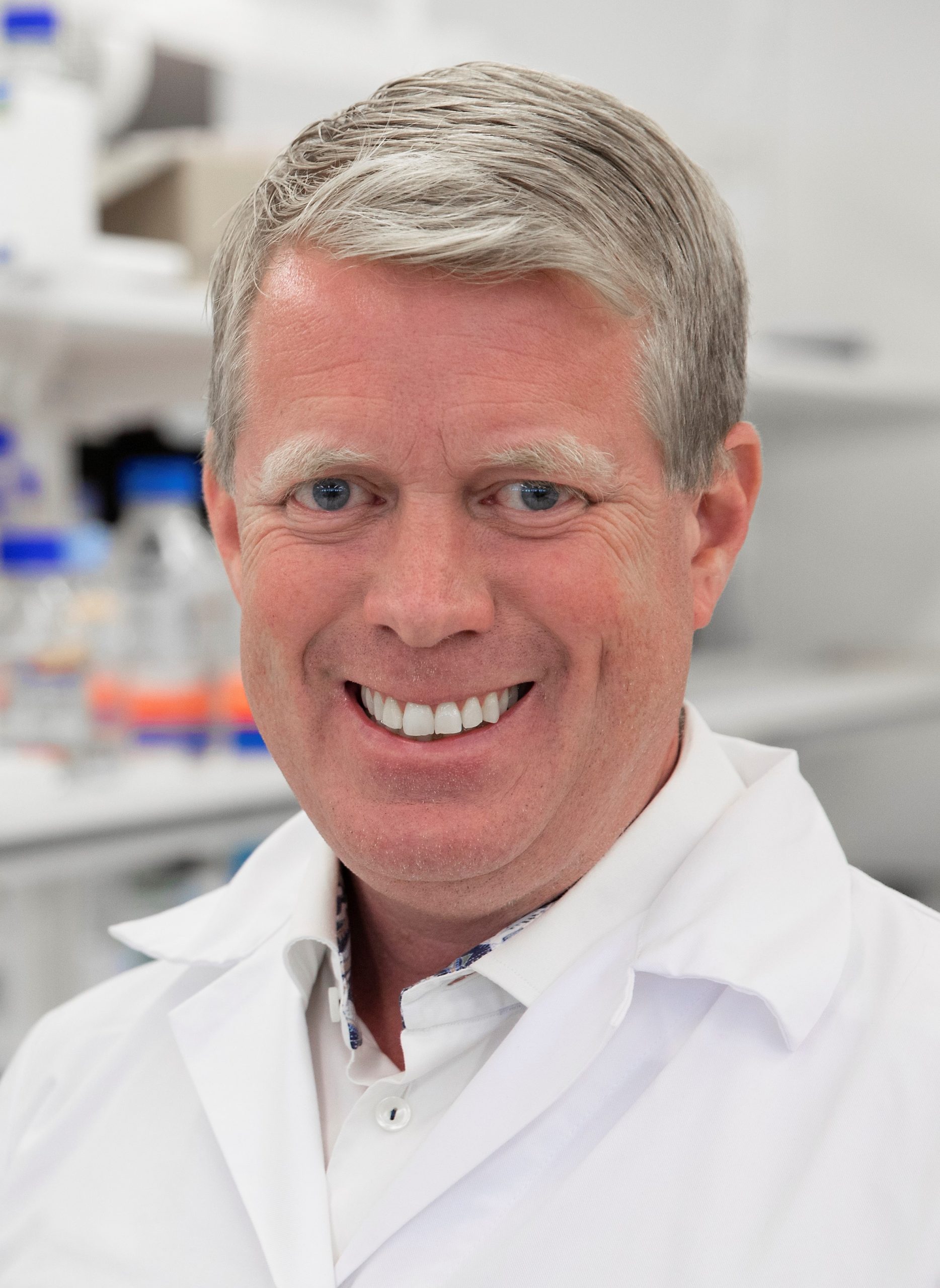Thomas Helleday
Research interests
The Helleday laboratory focuses on understanding the basic processes of DNA repair and nucleotide metabolism, translating original findings into novel treatments of cancer inflammation and virus infections. The strategy has for a long time been to have a multidisciplinary translational research group where basic scientists work alongside medicinal chemists, pharmacologists, drug developers as well as clinical trials experts. Staff working in the Helleday labs are all involved in the process from the early target discovery discussions all the way to phase II trials in patients. Our philosophy is that the people in the team is the main asset and that the input from all expertise contributes to sharpening the projects to increase the likelihood of success in our ultimate goal: to battle human diseases and improve lives.
The Helleday lab has been pioneering the DNA damage response (DDR) area over the last decades and demonstrated that homologous recombination defective cancers (HRD, e.g., BRCA mutant) are sensitive to PARP inhibitors (Bryant et al., 2005 Nature 434, 913-7), which was the first example of a synthetic lethal approach for treatment of cancer. This is rapidly becoming standard treatment for HRD positive cancer such as e.g., ovarian, breast, pancreatic, and prostate cancers. Several novel treatments are also emerging from the Helleday lab such as MTH1 inhibitors in cancer (Gad et al., 2014 Nature 508, 215-21) and OGG1 inhibitors in inflammation (Visnes et al., 2018 Science 362, 834-839) amongst others.
The Helleday lab has also been involved in pioneering several basic science discoveries such as oncogene-induced replication stress (Bartkova et al., 2006 Nature 444, 633-7) and uncovering repair and restart pathways at stalled replication forks (see for instance Sørensen et al., 2005 Nature Cell Biol 7, 195-201 or Petermann et al., 2010 Mol Cell 37, 492-502).
Research team
Research team Thomas Helleday – DNA repair and nucleotide metabolism
The research aims to i) purify and target proteins in DNA repair and metabolism, ii) use probes and genetic tools to increase basic knowledge around target proteins, and iii) translate basic research findings into new treatments tested in the clinic.
Group members
- Ann-Sofie Jemth, Principal researcher and Team Leader Biochemistry and In Vitro Pharmacology
- Elisee Wiita, Research engineer
- Evert Homan, Senior research specialist
- Helge Gad, Senior researcher
- Ingrid Almlöf, Research engineer
- Jianyu Shen, PhD student
- Kumar Sanjiv, Principal researcher and Team Leader In Vivo Pharmacology
- Maeve Long, postdoc
- Martin Henriksson, Research engineer
- Martin Scobie, Research engineer
- Maurice Michel, Assistant Professor and Lead Enzyme Catalysis
- Niklas Schultz, Senior researcher
- Oliver Mortusewicz, Principal researcher and Team Leader Basic Science
- Olov Wallner, Research engineer and Team Leader Medicinal chemistry
- Thomas Helleday, Professor, PI
- Therese Pham, Research engineer
- Viktoriia Tsuber, Research specialist
